他呀,只要一談到關於音樂、聲音呀,精神可就來了,開始栩栩如生地描繪藝術家、相關歷史、作品聲音聽起來如何,甚至開始模仿起聲音來了!他對聲音相關的創作充滿熱情,嘗試了許多創作的方法。除了在林茲藝術大學授課之外,你也可以在各個不同領域中看見他的作品,像是樂團、戲劇、電影原聲帶、聲音裝置、電子舞曲、廣播節目等等,而他便是奧地利藝術家 Wolfgang Dorninger a.k.a Fadi (*1960, Linz),很榮幸有機會與他面對面訪談。
Q: 是什麼樣的事情讓你開始對音樂、聲音產生興趣的呢?
D:「我十歲時加入合唱團,音域是落在 Alto [1],一直唱到14歲時,我的嗓音壞了,但是之中我學會如何讀懂樂譜,並唱出對的音。當時我的音樂世界就是 Josef Haydn (“Die Schöpfung”)、Antonio Vivaldi 和其他教會音樂。當一個Alto 的歌手,演出中必須要非常小心,因為 Sporano 有 20 人、Tenor 有 20 人, 就只有 Bass 跟 Alto分別是 5 人,只有 5 人的情況之下,我們真的要很專心,因為一但出錯,便難以掩飾,所以專心做事情上面,我很早就學到了。」
「自從我離開合唱團之後,我有 8 年的時間沒有做音樂相關的事了,大概就只是玩玩性質,有時彈彈吉他,14 歲到 21 歲之間我對音樂沒什麼興趣,直到看見德國樂團 Kraftwerk 在維也納的表演,看完如此驚豔的表演,我想“天呀,我一定要繼續做音樂創作。” 但是當然不是跟 Kraftwerk 同一種方式。還有一個來自舊金山的樂團,是我過去蠻喜歡的 "The Residents",他們是我回歸音樂的最初關鍵,如同一把鑰匙,所以我打開了盒子,開始了我的音樂生涯。」
「一開始,我做的音樂並不是用“真的樂器”,是用的嗓子來創作,如我過去所做一般。我自己開始焊了迴響、失真、飛梭和其他的效果器等這類東西,我的樂器便是手持卡帶機內建喇叭,我還做了一些改造讓速度不太一樣。不使用真正的樂器是我對當龐克、玩音樂的一種詮釋,我也想吸引林茲的龐克族群,但他們討厭我的音樂,後來買了合成器,聲音的呈現上可說是非常劇烈的轉變。」

Q: 在您的經歷中有些樂團表演的紀錄,這些過程對你來說如何?你也用合成器在樂團中表演嗎?
D:「在 Monochrome Bleu 一員中,我有唱和演奏合成器的部分,我們第二個成員 Thomas Resch ,他也有唱的部分,玩薩克斯風,跟演奏了一支如塑料管吹嘴,那是安裝在薩克斯管的,可以使聲音聽起來像是小號 (trumpet)。我會現場修改塑料管的聲音,做兩個數位延遲或是加上非常奇怪的效果,有時像大量的層次的聲音 - Doooooooo uuuuu,這時我就加入一些源自合成器上奇怪的聲效,而後鼓聲就加入了Dududu Dududu! 這些觀眾都很喜歡呢。 1988 年,因為鼓手跟 bass 手離開樂團,聲音結構上就有很多的改變,吉他手 Peter Androsch 加入樂團之後,我們開始變得更像一個以歌曲為導向的樂隊,之前我們比將像是工業風的樂團,之後, Peter 開始做很多歌劇的曲子,但過去他曾是一位優秀的吉他手。」
Photo2: Monochrome Bleu USA-Tour 1986, photo by Sabine Bitter.
Q: 您曾在維也納唸書,有些好奇是什麼樣的原因讓你回到林茲 ?您覺得林茲的音樂/聲音文化中有哪些特別的部分?
D: 「林茲是一個工業城,有著許多重工業與化學工廠,所以我想,相較於維也納的聲音,林茲的音樂總是那麼劇烈與濃厚,像是林茲 Techno 是 130 起跳,在維也納就屆在 110 到 120 之間,又或者是搖滾與龐克音樂都比較強烈跟有侵略性的。當我還是一個年輕小伙子時,林茲什麼也沒有,就是一片荒蕪,所以大家決定出走到維也納,有些人去印度,或者有些去美國念書了,林茲實在太無聊了,但是藝術改變了這一切。轉變從一個在 1977 年舉辦的活動 “Forum Metall“開始,兩年之後有個展覽 "Forum Design",展覽為 100 天在一個介於公路、火車軌道的橋墩與多瑙河的荒地,有名氣的設計師來到林茲,還有藝術節提供晚間在咖啡館的音樂節目。此外,林茲電子藝術節 Ars Electronica 從1979年開始舉辦了,Ars Electronica 剛開始就像是一個電腦音樂節,有 Bob Moog 、Tomita、 Klaus Schulz等人來到這個城鎮。總之,對我來說 Stadtwerkstatt 這樣一個獨立文化空間是影響我的創作最深的, Stadtwerkstatt 是由一群藝術家經營的藝術空間,因為有這個空間存在,情況轉變許多,林茲荒蕪變成富饒的花園,越來越多不同藝術領域的了解到他們應該要加入參與(林茲的活動),最棒的是 Stadtwerkstatt 一直到今天還在,也仍然前衛。」
「我在 Stadtwerkstatt 實現了幾個計畫,有一個是 “Fadi The Sampler Linz”,我有個從 1984 年到 1994 的卡帶廠牌 "Die Ind",就在 1984 年第一版的 “Fadi The Sampler Linz” 發行,之後又發行四版,Fadi Sampler 背後主要的想法是連結不同領域的音樂人,讓他們互相學習,或許之後就會開始合作了,像是爵士樂的人跟玩龐克音樂的人或是電子音樂製作人碰面,這想法反應非常熱烈,在聖誕節之前的 Fadi Sampler 活動派對越來越大型。 1987 年 Fadi Sampler#4 在 Stadtwerkstatt 的活動人滿為患,最後一場才活動有兩個場地,一個是 Stadtwerkstatt 和 Cafe Landgraf,這變成一場大型派對,音樂從實驗性質到奇怪爵士樂,從硬派 (Hardcore) 的音樂到高速音樂 (Speedcore),再到電子音樂,當然做酷的是大家敞開心胸去嘗試不同音樂風格。」
「在我去維也納之後,這圈子就再也沒能維持下去了,我得手起 Die Ind、Fadi Sampler 跟其他計畫,但我仍然花些時間回到林茲,畢竟我的工作室是在林茲,一段時日之後新的計劃誕生了,像是 7inch12。我在就讀維也納視覺媒體傳播學系 (Vienna Visual Media Communication) (Prof. Peter Weibel),但之後我得離開維也納,因為我無法在那裡工作,總是有太多的藝廊開幕、音樂演出、太多很棒的DJ派對,還有很多很棒的劇院...實在太難擠出時間工作、賺錢、製作。OK,如果你很有錢,這些將是令人興奮的時刻,但我害怕我是不是在浪費我的歲月,當我回到林茲時,我整個陷入音樂,像是一塊乾燥的海綿,一但有一滴水,就迅速吸收膨脹,從那天起,每天都充滿音樂,真的很奇妙。」
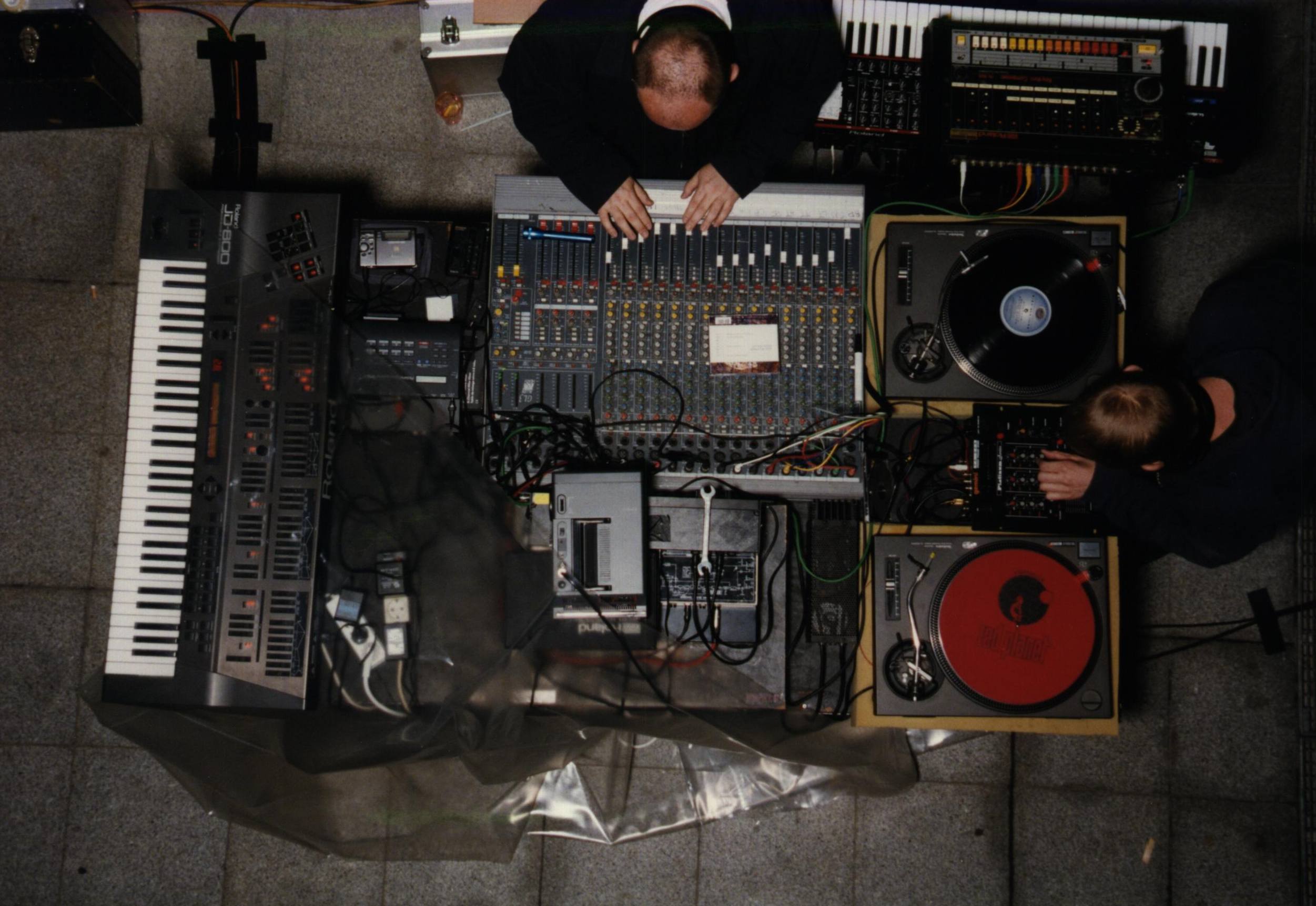
Photo3: The K. & DORNINGER live at AEC, Linz (pic. by Fleix Nöbauer)
Q:是否可以談談你主持的電台節目? 過程中什麼啟發你的事呢?電台節目又如何發展至此呢?
D:「大概在 1980 年的奧地利,我們只有一個由政府機關的廣播節目和電視台,全部屬於同一間公司,針對音樂的部分,我只喜歡一個叫做 “Music Box” 的每天一小時節目,還有中午之前有一小時的爵士樂,每個禮拜有一個小時會在半夜播放搖滾跟重金屬音樂,這大概就是全部了,很顯然的,對於音樂愛好者來說這是不夠的,我們得去買專輯錄音才能與好音樂維繫。」
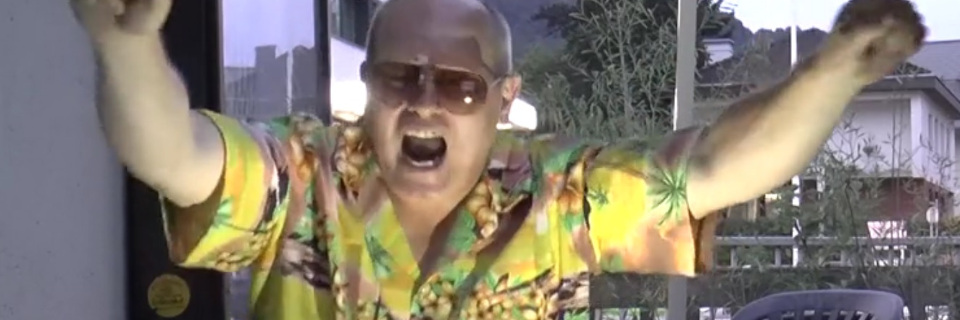
Photo4: "THE SMILING BUDDHAS",TNC17 @ STWST
「當我在美國與我的樂團 Monochrome Bleu 做巡迴表演時,每個到一個城市表演時,當地人帶我們去他們的大學電台會是社區廣播電台,哇,我們在電台裡根本沒有時間限制,哈哈哈,電台 DJ 們大概一小時之後進來準備要把節目做個結尾,結果下一位主持人則是過來跟我們說“你們留下來吧,我喜歡你們的聲音,就繼續彈奏下去吧!”我們從一個節目到下個節目,老天,真的假的?這也是廣播呀?對我們來說這可是很新的廣播方式。舉奧地利的例子來說,像要發行 Die Ind 廠牌的卡帶,我早已高興不以可以獲得4分鐘在 “Music Box”的播放時間,而且錄音帶或黑膠唱片必須要賣的非常好,才能在節目中佔據一席之地,而且這四分鐘還包括部分卡帶音樂、Dj主持的訪談,全在這四分鐘裡,所以我們可說是對於在美國的廣播節目感到萬分驚奇,了解到奧地利需要其他種新的節目,我們要真的廣播!」
「我們開始了廣播計畫,像是在奧地利林茲的藝文中心 OK (OK Center for Contemporary Art Austria),我們有個廣播實驗室,但我們把廣播節目的形式錄製到卡帶裡,希望散播的方式可以啟發更多人並呈現不一樣的廣播種類。我們成了無線電海盜,還焊接了小的無線電放大器,但我們總是輸家,因為那些負責看管頻率的政府人員,擁有更好的技術,在播放的 20 分鐘後,他們就發現了我們在某個頻率區搗亂,就用宗教音樂把我們覆蓋過去......(哈哈哈!!!),所以派對就結束啦,我們從來沒有贏過,但後來有具有政治背景的加入這場運動,而且他們知道怎麼去推動法律的改革,幾年之後,法律改了,地區社群可以有廣播節目了。在林姿我們有 "Radio Fro“(奧地利 林茨的105Mhz 已經撥出20年了),我的廣播節目 “Fadimat105” 專注於電子音樂上,囊括實驗的風格、新音樂,也有techno,我這節目早在 “Radio Fro” 開始時就上線了,每個月播放一次,在第一個星期四晚上十點到午夜,對我來說,這是對城市生活的一種貢獻,所以我很盡力產出電子音樂提供給聽眾,我會持續下去的,因為我真的很愛廣播,也是一個推動我認識新的音樂之方式。」
Photo5: "Cassette Culture Node. Linz" and Dorninger, photo by Yen Tzu Chang.
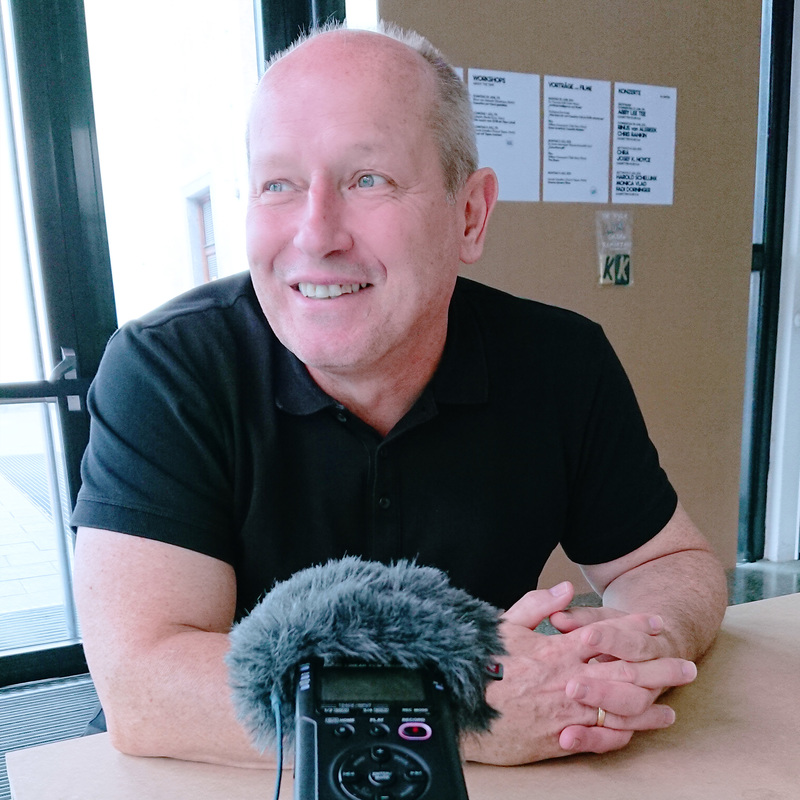
Photo6: Interview with Dorninger, photo by Yen Tzu Chang.
訪談的地點在 Dorninger 策劃 "Cassette Culture Node. Linz" 裡面,Dorninger 表示,展覽呈現了一群非主流音樂家/藝術家的熱情,這些交流信件和交換音樂卡帶的行動,幫助他們互相成長和學習,也建立了深厚的友誼。 從採訪中,我意識到了展覽地點的文化連結 - 奧地利林茲的藝文中心 OK 和 Dorninger 的過去,我想 Dorninger 對電子音樂和聲音藝術的創作充滿熱情是無庸置疑的,從他與一小群人的事情,逐漸成為構建林茲聲音藝術和音樂文化的一部分。
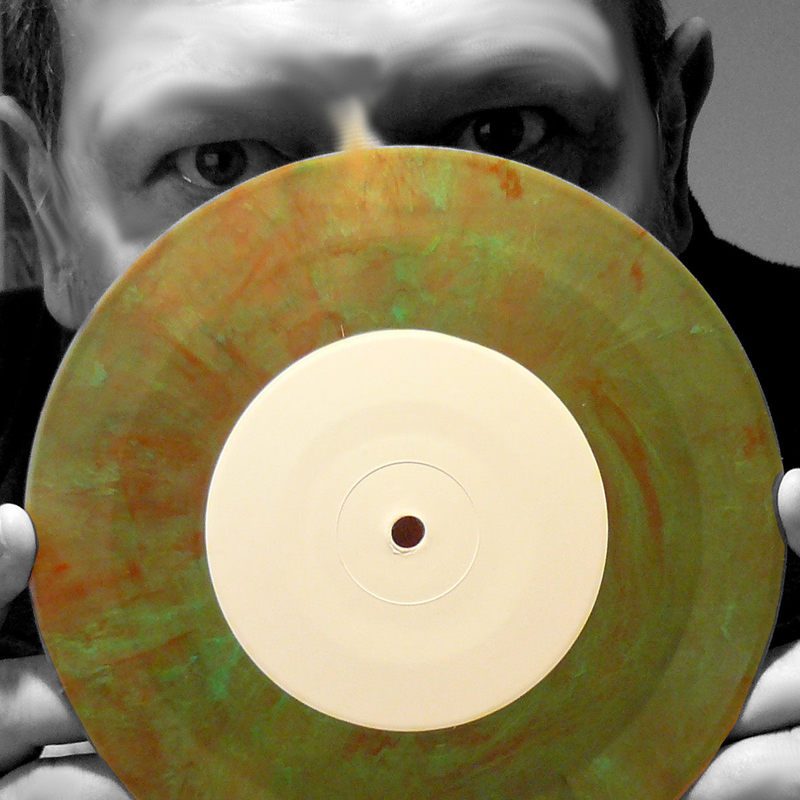
Photo7: Wolfgang Dorninger.
備註:
封面照片:"The Field-Recorder" - pic. by Max Bauer
連結:
Homepage: http://dorninger.servus.at/
Base (my record label): http://www.base.at
Cassette Culture Node.Linz: http://www.base.at/ccnl/
Fadimat 105: https://www.fro.at/sendungen/fadimat-105/
Dorninger at dorfTV: https://dorftv.at/videos?text=dorninger
--------------------------------------------------------------------------
From choir to electronic music/sound art, Austrian artist Wolfgang Dorninger talks about his creative process and the Linz connection
When a conversation with him comes to music/sound, he is always full of energy. You can see how he excitedly describes the history and artists, how their work sounds like, and sometimes he even imitates the texture of the sound. He is passionate about auditory creations since he is very interested in knowing any relevant details by trying many creative methods. Beside hosting lectures at the Kunstuniversität Linz, you can also see his works in many different music types/sound fields such as band music, drama and film soundtracks, sound devices, electronic dance music, radio shows, and many more. Today, we are really honored to have a chance to interview this amazing guy, the Austrian artist Wolfgang Dorninger a.k.a Fadi (*1960, Linz). (Q: Question, D: Dorninger.)
Q: How did you begin to get interested in music/sound?
D: [ I started singing in a choir when I was ten years old. My voice was Alto, I did it until I was 14, then my voice broke. I have learned to read notes because we sang from sheets. And it was the musical world of Josef Haydn („Die Schöpfung“), Antonio Vivaldi and other pieces of church music. As an Alto, you always have to be very careful during a performance, because there were 20 Sopranos, 20 Tenors, but just 5 Altos and also 5 Basses. Being only 5 Altos we had to be very focused because it was very hard to hide a mistake. So, I learned very early to concentrate when I do something.
When I left the choir, I stopped doing music for about 8 years. Sometimes just for fun, I played acoustic guitar at parties. I was not interested in music between 14 and 21 until I saw the German band Kraftwerk in Vienna. After this fabulous concert I thought "Oh, I have to do start doing music again". But not the way as Kraftwerk did. There was a second band I really loved these days: "The Residents" from San Francisco. They had been my initial key back to music, so I opened the box and started to work on my musical career.
In the beginning, I did it not with real instruments but I used to work with my voice. I soldered reverbs and distortion tools, flangers and other effect tools ... stuff like these. And, my instruments had been three tape-decks with speakers built in. And I made modifications on it so that the speed was different and little changes on the electronics. It was my interpretation of being punk playing music without real instruments. I wanted to have the attention of the punks in Linz but they hated my sound. Later on, I bought a synthesizer and the sound changed dramatically.]
Q: I saw you have some experiences playing in bands. How was it? Did you play the synthesizer with bands?
D: [ At Monochrome Bleu, I played synthesizer and sang. And, there was the second member, Thomas Resch. He also sang, played saxophone, and played a plastic tube which the mouthpiece of his saxophone, then it sounded a little bit like a trumpet. I always modified the sound of the plastic tube live with two digital delays and very strange effects. Sometimes like vast layers, Doooooooo uuuuu. Then I added strange synth sounds and then the drummer came in, Dududu Dududu! That's what audience liked a lot. In 1988, when the drummer and the bass player left the band the sound-structure of the band changed a lot. After the guitar player (Peter Androsch) joined the band, we started to become more a song-oriented band. Before, we were an industrial band. After Monochrome Bleu, Peter started to compose mainly operas, but at these days he was a brilliant guitar player. ]
Q: You studied in Vienna. What was the reason to come back to Linz? Did you find out something special in Linz music/sound culture?
D: [ Linz is an industrial town with a lot of heavy and chemical industry, so Linz music was always harsher and heavier than the sound of Vienna for example. For instance, Linz techno was 130 up. In Vienna, it was 110 to 120. And also rock and punk music are more harsh and fierce. When I was a young guy, nothing happened in Linz. Linz was a wasteland so most people decided to go to Vienna, some people went to India and others decided to go to study in the USA. It was so boring in Linz, but the change came through art. It started with „Forum Metall“ in 1977 and two years later with the exhibition "Forum Design". The exhibition lasted 100 days in a wasteland between the motorway, the Railway Bridge and the Danube. Famous designers come to Linz and the festival provided also a music program late night in the festival cafe. Furthermore, Ars Electronica started in 1979. In the beginning, it was more like a computer music festival bringing Bob Moog, Tomita, Klaus Schulze, and others to town. But for me, the independent cultural space Stadtwerkstatt had the most influence on my art. It was run by artists’ who started an open art space. And with this space, the situation changed dramatically and Linz changed from a wasteland to a prosperous garden. More and more people from all art fields realized that they have to participate. And best Stadtwerkstatt is still alive and „avant-garde“.
I realized several projects at Stadtwerkstatt. One was „Fadi The Sampler Linz“. I run the tape label "Die Ind" from 1984 to 1994. In 1984 I started "FADI The Sampler Linz" with edition 1. Four more followed. The idea behind Fadi Sampler was to connect musicians of different musical fields so that they could learn to know each other and maybe start cooperations. So jazz people met Punks or electronic music producers. This worked out quite fine and the Fadi Sampler Linz presentation parties before Christmas became bigger and bigger. In 1987 (Fadi Sampler #4) Stadtwerkstatt was overcrowded. So the last presentation happened on two locations: Stadtwerkstatt and Cafe Landgraf. It became a huge party and the sound ranged from experimental to wired jazz, from hardcore to speedcore, to electronic music… and best: People and musician opened themselves to different styles.
When I went to Vienna, the circle went broken. I had to stop Die Ind, Fadi Sampler and other projects. I still spent time in Linz because my studio was there. After a while, new projects started in Linz like 7inch12. I studied in Vienna Visual Media Communication (Prof. Peter Weibel) but I had to leave because I couldn't work there. In Vienna, I had to go to so many art openings, so many concerts, so many good DJ parties, there had been so many great theaters ... I hardly found time to work, to make money, to produce. OK, If you are rich, yes, it would have been a thrilling time, but I feared that I might just waste my time. When I came back to Linz, I got totally into music. I was like a sponge, totally dry and with some water drips on it, I expanded. My life is since that day full of music and it's fantastic. ]
Q: How about the radio show you host currently? Did anything inspire you to do it? How it comes like that?
D: [ Around the 1980s, in Austria, we only had one governmental radio station and one governmental TV station and all in one company. For the music, I liked there was only one radio show called „Music Box“ one hour a day. And before noon, there was one hour Jazz. Late night there was one hour a week hard rock and heavy metal. That was all, so it was not enough for music enthusiasts. We had to buy records to get in touch with really good music.
When I was in the USA on tour with my band Monochrome Bleu, in every city we played they brought us the College Radio Station or to the Community Radio Station. Hey! We are on the radio and no limited time, hahaha! The Djs program ended after an hour and when the next radio DJ came he just said: „Stay, I like your sound, let‘s keep it rolling.“ We switched from one show to the next! "God, is this possible? This is also a radio?" This was a totally new radio experience for us. In Austria for example, when I released a tape production at Die Ind, I could have been happy to have four minutes at „Music Box“. And the tape or vinyl record had to be very good to get a slot at the show. In this 4 minutes, they played music from the cassette with short parts of the interview and the review of the radio DJ. All in 4 minutes! We got so super inspired by our new radio experiences! We knew that we need another kind of radio in Austria. We need real radios!
And, we started with radio projects, for example, here at the OK (OK Center for Contemporary Art Austria), we had a Radio Lab. We produced radio shows being published on cassettes just to inspire people and to present another kind of radio. We became radio pirates. We soldered little radio amplifiers, but we always lost because the guys of the government who hat to take care of the frequencies had better technology. 20 minutes later, they found out about our activities in that special area and the overdubbed it with religious music...(Hahaha!!!). So the party was over. We hadn't been successful. But later, people with a political background joined in the movement and they knew what to do to get the law changed. Some years later, the law changed and community radio could start! In Linz, we have "Radio Fro“ (105Mhz in Linz, Austria and 20 years on air). My radio show „Fadimat105“ focuses on electronic music in a range from experimental to new music to techno. I am on air since "Radio Fro" started. It's a monthly show every first Tuesday from 10 pm till midnight. For me, it's my contribution to city life. So I try hard to be an expert on electronic music for my listeners. I keep doing it because I love radio and have to keep me updated with great new music! ]
The interview was held in Dorningers "Cassette Culture Node. Linz" exhibition. Dorninger said that the exhibition showed the enthusiasm of a group of non-mainstream musicians/artists. These letters and music cassette exchanges help them to grow and learn more from each other and build up a deep friendship. From the interview, I realized the link and culture stream of exhibition site — OK Center and his past. I think that Dorninger is for sure passionate about the creation of electronic music and sound art. However, it is just a matter of him or a small group of people but gradually become a contributor to construct the Linz sound art and musical culture.
cover:"The Field-Recorder" - pic. by Max Bauer .
Some links:
Homepage: http://dorninger.servus.at/
Base (my record label): http://www.base.at
Cassette Culture Node.Linz: http://www.base.at/ccnl/
Fadimat 105: https://www.fro.at/sendungen/fadimat-105/
Dorninger at dorfTV: https://dorftv.at/videos?text=dorninger
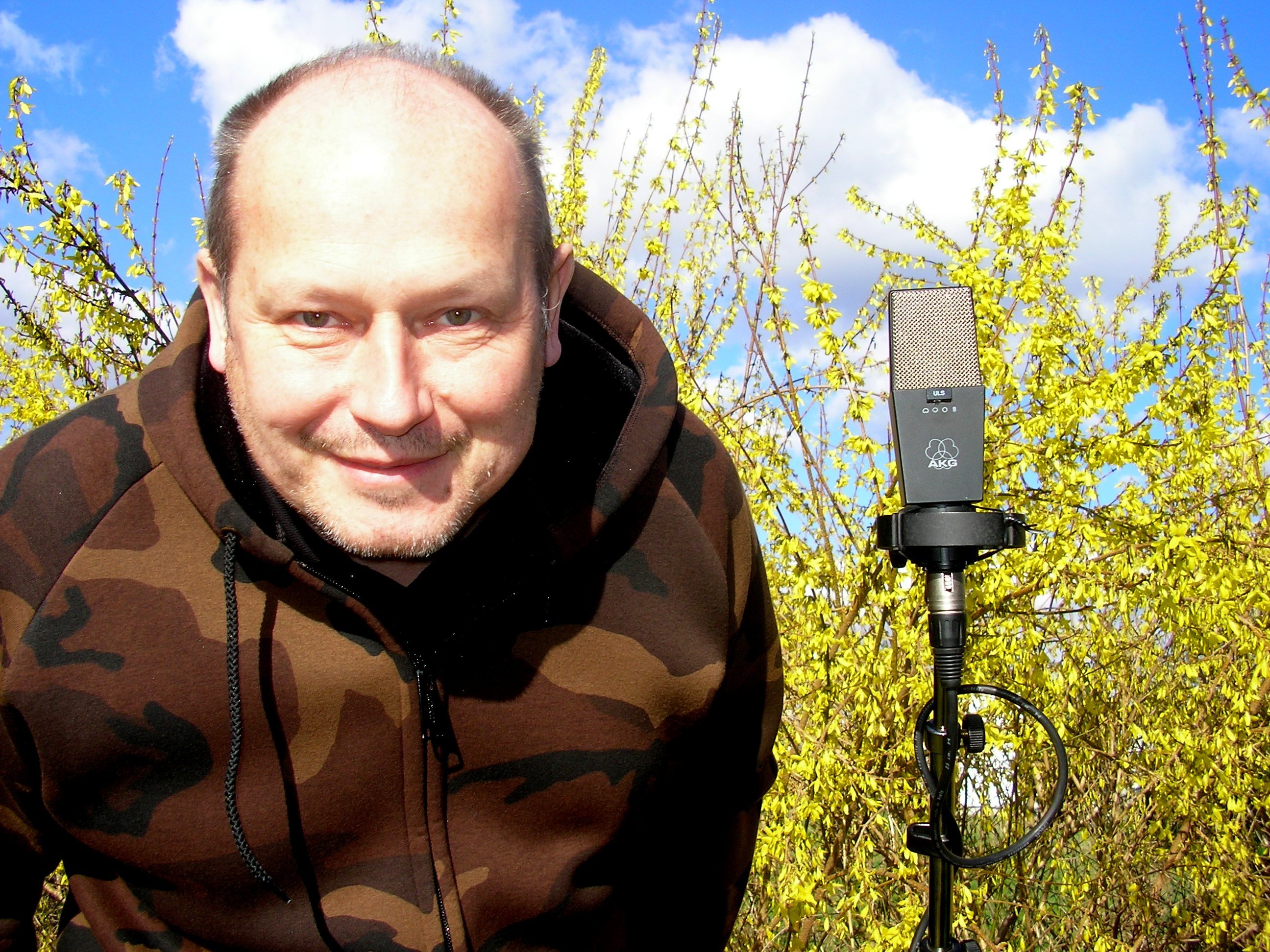
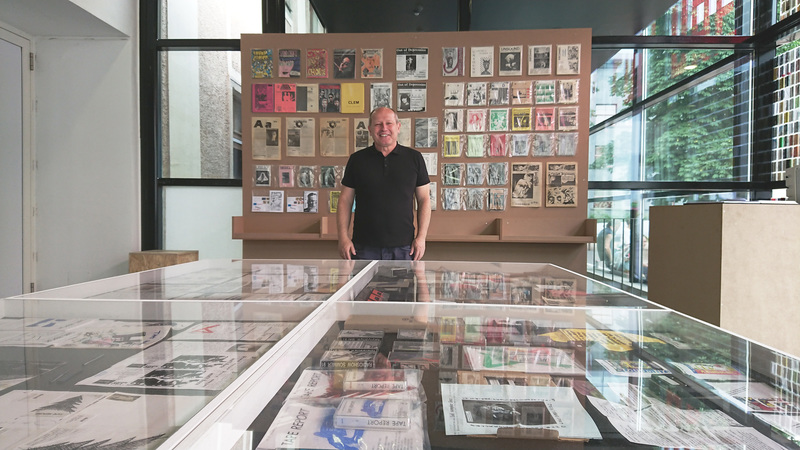
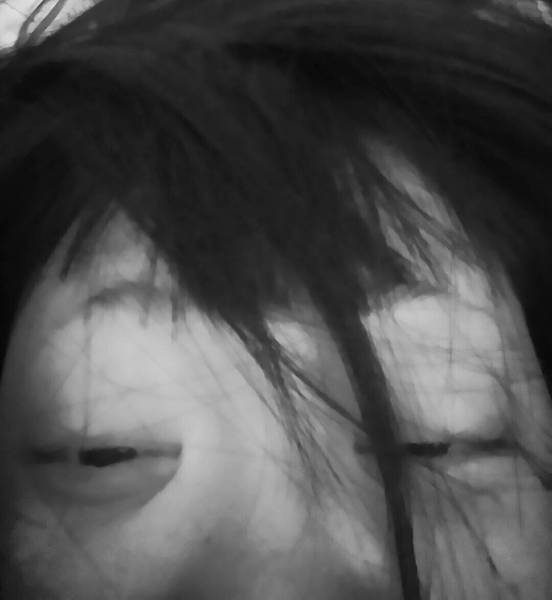
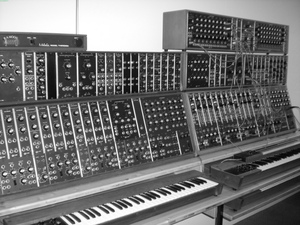

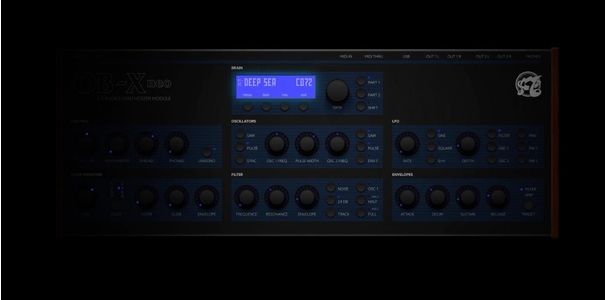
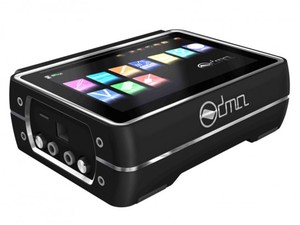
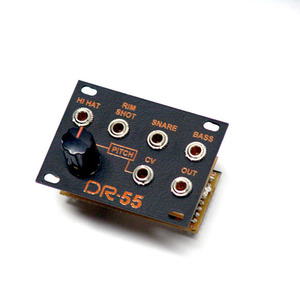
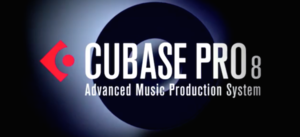
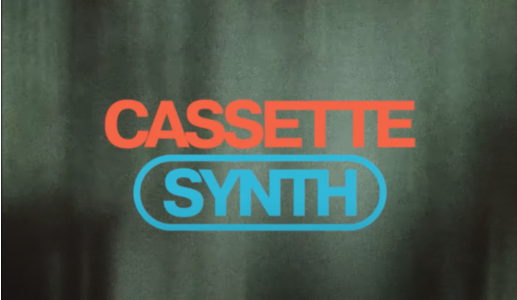
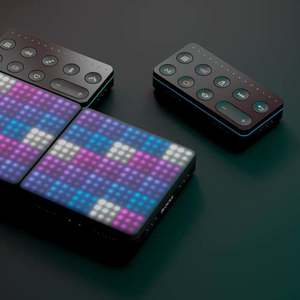
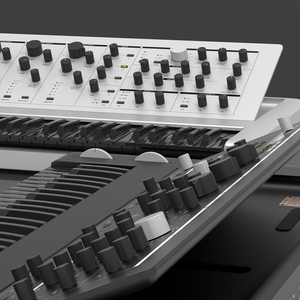
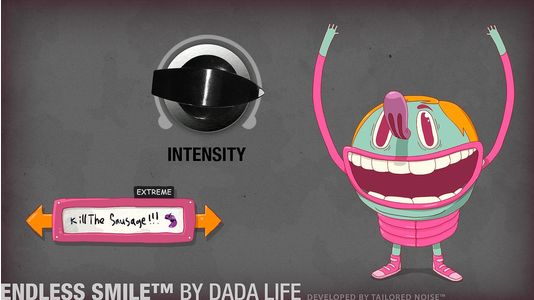
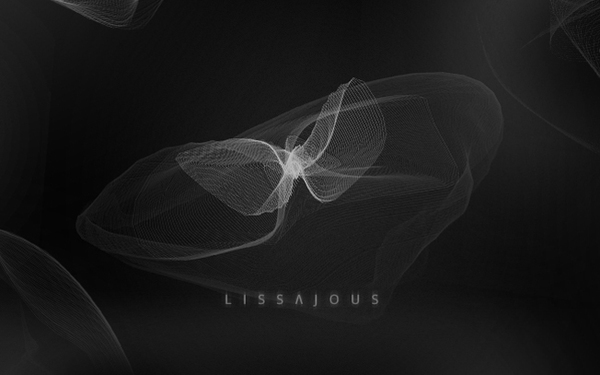
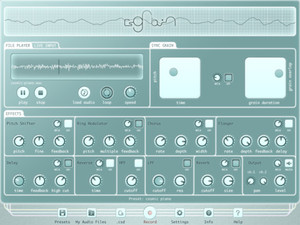

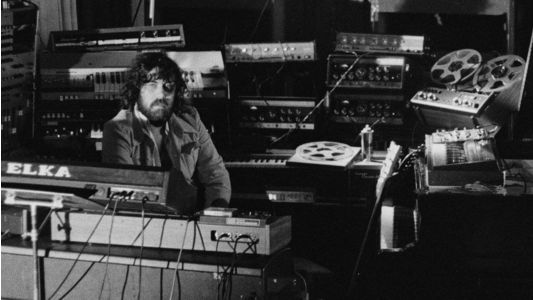
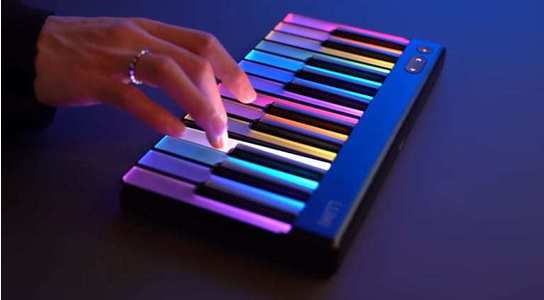
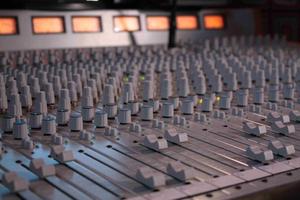
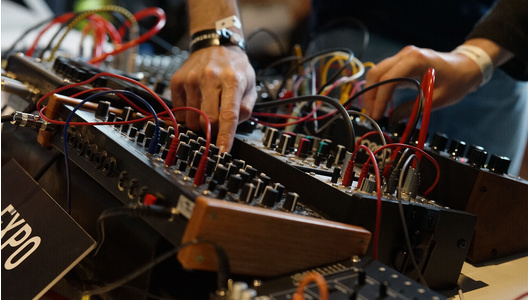
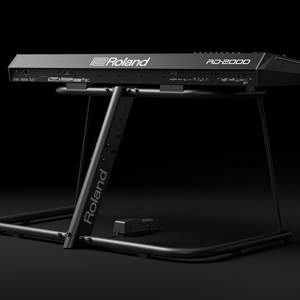
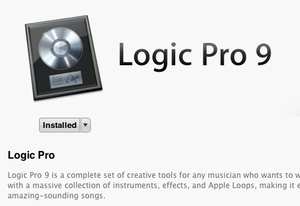
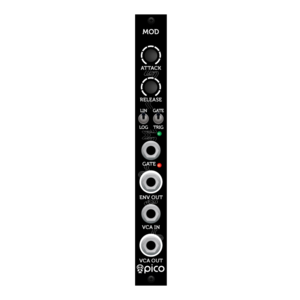
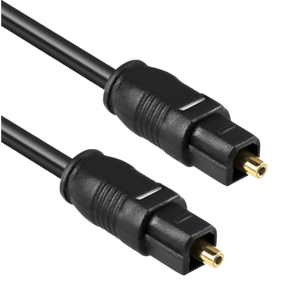
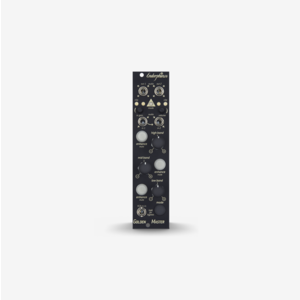


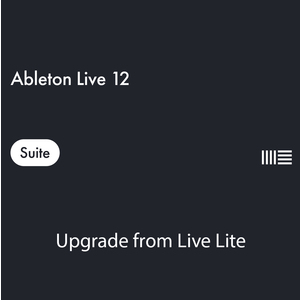
討論區
目前尚無評論